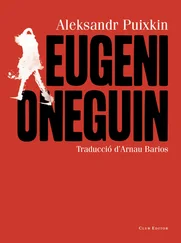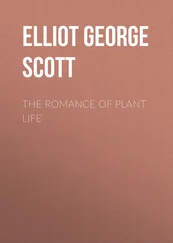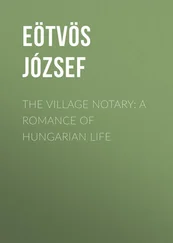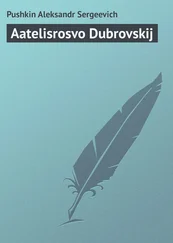Aleksandr Pushkin - Eugene Oneguine [Onegin]. A Romance of Russian Life in Verse
Здесь есть возможность читать онлайн «Aleksandr Pushkin - Eugene Oneguine [Onegin]. A Romance of Russian Life in Verse» весь текст электронной книги совершенно бесплатно (целиком полную версию без сокращений). В некоторых случаях можно слушать аудио, скачать через торрент в формате fb2 и присутствует краткое содержание. Год выпуска: 2007, Жанр: Поэзия, на английском языке. Описание произведения, (предисловие) а так же отзывы посетителей доступны на портале библиотеки ЛибКат.
- Название:Eugene Oneguine [Onegin]. A Romance of Russian Life in Verse
- Автор:
- Жанр:
- Год:2007
- ISBN:нет данных
- Рейтинг книги:4 / 5. Голосов: 1
-
Избранное:Добавить в избранное
- Отзывы:
-
Ваша оценка:
- 80
- 1
- 2
- 3
- 4
- 5
Eugene Oneguine [Onegin]. A Romance of Russian Life in Verse: краткое содержание, описание и аннотация
Предлагаем к чтению аннотацию, описание, краткое содержание или предисловие (зависит от того, что написал сам автор книги «Eugene Oneguine [Onegin]. A Romance of Russian Life in Verse»). Если вы не нашли необходимую информацию о книге — напишите в комментариях, мы постараемся отыскать её.
Eugene Oneguine [Onegin]. A Romance of Russian Life in Verse — читать онлайн бесплатно полную книгу (весь текст) целиком
Ниже представлен текст книги, разбитый по страницам. Система сохранения места последней прочитанной страницы, позволяет с удобством читать онлайн бесплатно книгу «Eugene Oneguine [Onegin]. A Romance of Russian Life in Verse», без необходимости каждый раз заново искать на чём Вы остановились. Поставьте закладку, и сможете в любой момент перейти на страницу, на которой закончили чтение.
Интервал:
Закладка:
56
The superstition is that the name of the future husband may thus be discovered.
57
See Note 30.
58
Lel, in Slavonic mythology, corresponds to the Morpheus of the Latins. The word is evidently connected with the verb "leleyat" to fondle or soothe, likewise with our own word "to lull."
59
"Malvina," a romance by Madame Cottin.
60
The above three lines are a parody on the turgid style of Lomonossoff, a literary man of the second Catherine's era.
61
Pushkin calls Bouyanoff his cousin because he is a character in the "Dangerous Neighbour," a poem by Vassili Pushkin, the poet's uncle.
62
The Donskoe Champanskoe is a species of sparkling wine manufactured in the vicinity of the river Don.
63
Francesco Albano, a celebrated painter, styled the "Anacreon of Painting," was born at Bologna 1578, and died in the year 1666.
64
Hospitality is a national virtue of the Russians. On festal occasions in the country the whole party is usually accommodated for the night, or indeed for as many nights as desired, within the house of the entertainer. This of course is rendered necessary by the great distances which separate the residences of the gentry. Still, the alacrity with which a Russian hostess will turn her house topsy-turvy for the accommodation of forty or fifty guests would somewhat astonish the mistress of a modern Belgravian mansion.
65
There must be a peculiar appropriateness in this expression as descriptive of the sensation of extreme cold. Mr. Wallace makes use of an identical phrase in describing an occasion when he was frostbitten whilst sledging in Russia. He says (vol. i. p. 33): "My fur cloak flew open, the cold seemed to grasp me in the region of the heart , and I fell insensible."
66
A line of Griboyedoff's. (Woe from Wit.)
67
The fact of the above words being italicised suggests the idea that the poet is here firing a Parthian shot at some unfriendly critic.
68
Lepage—a celebrated gunmaker of former days.
69
In Russia and other northern countries rude shoes are made of the inner bark of the lime tree.
70
Levshin—a contemporary writer on political economy.
71
The crown used in celebrating marriages in Russia according to the forms of the Eastern Church. See Note 28.
72
The Russians not unfrequently adorn their apartments with effigies of the great Napoleon.
73
"Matushka," or "little mother," a term of endearment in constant use amongst Russian females.
74
In former times, and to some extent the practice still continues to the present day, Russian families were wont to travel with every necessary of life, and, in the case of the wealthy, all its luxuries following in their train. As the poet complains in a subsequent stanza there were no inns; and if the simple Larinas required such ample store of creature comforts the impediments accompanying a great noble on his journeys may be easily conceived.
75
This somewhat musty joke has appeared in more than one national costume. Most Englishmen, if we were to replace verst-posts with milestones and substitute a graveyard for a palisade, would instantly recognize its Yankee extraction. In Russia however its origin is as ancient at least as the reign of Catherine the Second. The witticism ran thus: A courier sent by Prince Potemkin to the Empress drove so fast that his sword, projecting from the vehicle, rattled against the verst-posts as if against a palisade!
76
The aspect of Moscow, especially as seen from the Sparrow Hills, a low range bordering the river Moskva at a short distance from the city, is unique and splendid. It possesses several domes completely plated with gold and some twelve hundred spires most of which are surmounted by a golden cross. At the time of sunset they seem literally tipped with flame. It was from this memorable spot that Napoleon and the Grand Army first obtained a glimpse at the city of the Tsars. There are three hundred and seventy churches in Moscow. The Kremlin itself is however by far the most interesting object to the stranger.
77
Napoleon on his arrival in Moscow on the 14th September took up his quarters in the Kremlin, but on the 16th had to remove to the Petrovski Palace or Castle on account of the conflagration which broke out in all quarters of the city. He however returned to the Kremlin on the 19th September. The Palace itself is placed in the midst of extensive grounds just outside the city, on the road to Tver, i.e. to the northwest. It is perhaps worthy of remark, as one amongst numerous circumstances proving how extensively the poet interwove his own life-experiences with the plot of this poem, that it was by this road that he himself must have been in the habit of approaching Moscow from his favourite country residence of Mikhailovskoe, in the province of Pskoff.
78
The first line refers to the prevailing shape of the cast-iron handles which adorn the porte cocheres . The Russians are fond of tame birds—jackdaws, pigeons, starlings, etc., abound in Moscow and elsewhere.
79
One of the obscure satirical allusions contained in this poem. Doubtless the joke was perfectly intelligible to the habitues of contemporary St. Petersburg society. Viazemski of course is the poet and prince, Pushkin's friend.
80
Many will consider this mode of bringing the canto to a conclusion of more than doubtful taste. The poet evidently aims a stroke at the pedantic and narrow-minded criticism to which original genius, emancipated from the strait-waistcoat of conventionality, is not unfrequently subjected.
81
This touching scene produced a lasting impression on Pushkin's mind. It took place at a public examination at the Lyceum, on which occasion the boy poet produced a poem. The incident recalls the "Mon cher Tibulle" of Voltaire and the youthful Parny (see Note 42). Derjavine flourished during the reigns of Catherine the Second and Alexander the First. His poems are stiff and formal in style and are not much thought of by contemporary Russians. But a century back a very infinitesimal endowment of literary ability was sufficient to secure imperial reward and protection, owing to the backward state of the empire. Stanza II properly concludes with this line, the remainder having been expunged either by the author himself or the censors. I have filled up the void with lines from a fragment left by the author having reference to this canto.
82
See Note 30, "Leonora," a poem by Gottfried Augustus Burger, b. 1748, d. 1794.
83
romance by Maturin.
84
The "Demon," a short poem by Pushkin which at its first appearance created some excitement in Russian society. A more appropriate, or at any rate explanatory title, would have been the Tempter . It is descriptive of the first manifestation of doubt and cynicism in his youthful mind, allegorically as the visits of a "demon." Russian society was moved to embody this imaginary demon in the person of a certain friend of Pushkin's. This must not be confounded with Lermontoff's poem bearing the same title upon which Rubinstein's new opera, "Il Demonio," is founded.
Читать дальшеИнтервал:
Закладка:
Похожие книги на «Eugene Oneguine [Onegin]. A Romance of Russian Life in Verse»
Представляем Вашему вниманию похожие книги на «Eugene Oneguine [Onegin]. A Romance of Russian Life in Verse» списком для выбора. Мы отобрали схожую по названию и смыслу литературу в надежде предоставить читателям больше вариантов отыскать новые, интересные, ещё непрочитанные произведения.
Обсуждение, отзывы о книге «Eugene Oneguine [Onegin]. A Romance of Russian Life in Verse» и просто собственные мнения читателей. Оставьте ваши комментарии, напишите, что Вы думаете о произведении, его смысле или главных героях. Укажите что конкретно понравилось, а что нет, и почему Вы так считаете.











